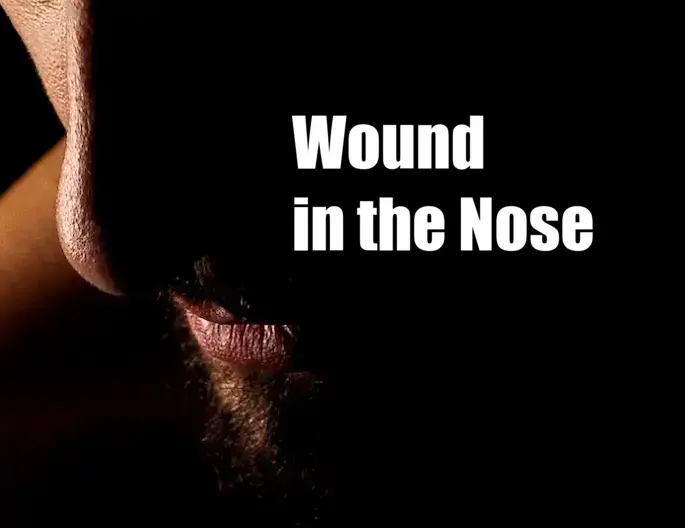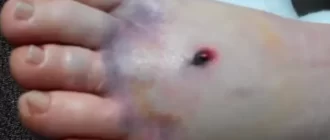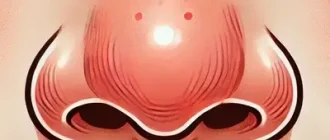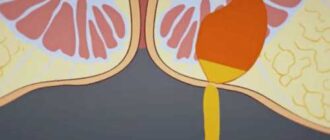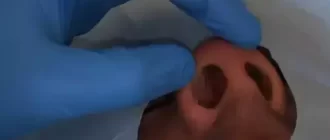Different factors like scratches, bacterial infections, or health issues can lead to wounds or sores in the nose. Although many cases can be treated at home, it is crucial to consult a doctor if the wounds do not improve or get worse after a week of self-care.
Causes of Wounds in the Nose
- Scratches: Excessive force while picking the nose or inserting foreign objects can cause the sensitive skin inside the nostrils to become scratched.
- Bacterial Infections: Harmful bacteria can enter the nasal passages, leading to infections that cause painful sores or ulcers.
- Health Conditions: Some individuals with health conditions like lupus or vasculitis may be more prone to developing sores in the nose.
Nose Wound Symptoms
When dealing with a nose wound, understanding and identifying various symptoms can be vital for determining the severity of the injury. Below is a chart that categorizes different symptoms along with an indication of how dangerous they might be. The emojis provide a visual cue to the nature of the symptom.
| Symptom | Danger Level | Appropriate Sign |
|---|---|---|
| Bleeding | Moderate | 🩸 |
| Swelling | Mild to Moderate | 🥵 |
| Pain | Mild to Moderate | 😣 |
| Discoloration (Bruising) | Mild | 🟣 |
| Difficulty Breathing | Severe | 😮💨 |
| Deformity (Change in Shape) | Severe | 😲 |
| Clear Fluid Leakage | Moderate | 💧 |
| Blood Clot Formation | Moderate | 🧲 |
| Infection Signs (redness, heat, pus) | Severe | 🔥 |
Bleeding ranges from mild to severe, depending on the flow rate, but it’s usually a moderate concern, as it can often be managed with pressure and medical tape.
Swelling is common and typically mild but could be moderate if it interferes with vision or breathing.
Pain varies widely and, while uncomfortable, is often more distressing than dangerous.
Discoloration indicates bruising, which is generally a mild issue and an expected part of the healing process.
Difficulty Breathing through the nose, particularly if it’s sudden or severe, can be a sign of a serious issue such as a blocked airway.
Deformity suggests a potential fracture or break, making it a severe concern that requires immediate medical attention.
Clear Fluid Leakage might be a moderate concern, particularly if the fluid is cerebrospinal fluid, indicating a skull fracture.
Blood Clot Formation can be moderate if it obstructs breathing passages or indicates a deeper injury.
Infection Signs, such as excess redness, heat, or pus, represent a severe state that suggests complications and the need for immediate medical intervention.
Remedies for Wounds in the Nose
- Nasal Moisturization: Applying a nasal moisturizer or saline spray can help prevent the nasal passages from drying out, allowing the wounds to heal more effectively.
- Antibiotic Ointments: To fight off infections and reduce pain, your healthcare provider may recommend the use of antibiotic creams or ointments specifically formulated for nasal use.
- Scab Care: It is crucial to allow scabs to heal naturally without picking or scratching at them. Picking at the scab can prolong the healing process and lead to further bleeding and scab formation.
- Avoid Smoking and Drug Use: Smoking and drug use can impair the body’s natural healing process and increase the risk of infection. It is advisable to avoid these habits anyway.
When to See a Doctor
If painful scabs or sores within the nose do not show any signs of improvement after one week of home treatment, it is recommended to make an appointment with a healthcare professional. During the appointment, the doctor will inquire about symptoms and underlying conditions and may perform a nasal examination using a light. In the case of suspected infection, blood work may be ordered to check for any signs of infection in the bloodstream.
Conclusion
While most cases of wounds in the nose can be managed at home with proper care and remedies, persistent or worsening symptoms should not be ignored. Seeking medical advice when necessary is crucial to ensure appropriate diagnosis and treatment. Remember to let the scabs heal naturally, minimize irritants, and practice good nasal hygiene to promote faster healing and prevent future complications.
About the Author
Reyus Mammadli is the author of this health blog since 2008. With a background in medical and biotechnical devices, he has over 15 years of experience working with medical literature and expert guidelines from WHO, CDC, Mayo Clinic, and others. His goal is to present clear, accurate health information for everyday readers — not as a substitute for medical advice.

